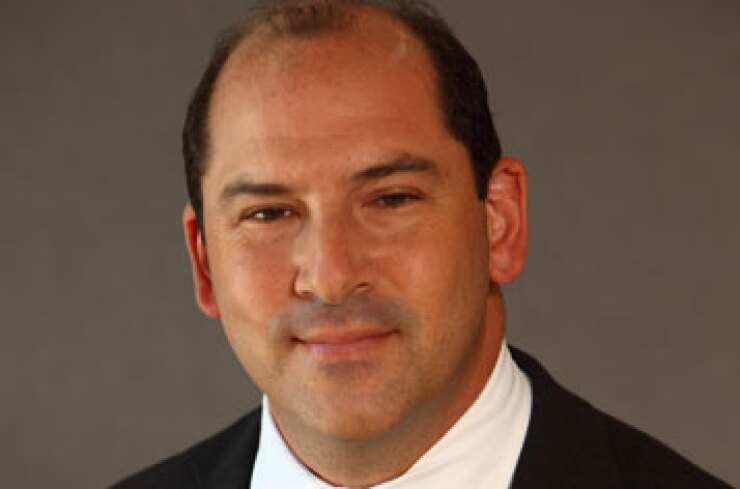
WASHINGTON - Dealer groups oppose a Municipal Securities Rulemaking Board proposal to provide academics with muni trade and pricing data with anonymous dealer identifiers while researchers contend the new data will add to market transparency.
The conflicting stances were taken in 12 comment letters from dealers, academics and others. Dealer groups argued the data would expose broker-dealers to business risks if the academics used the data to reverse engineer the trades.
Bond Dealers of America and Securities Industry and Financial Markets Association both said they were concerned the anonymized identifiers would open their members up to the possibility of having their identities, trading strategies and inventories discovered through reverse engineering.
"The potential impact of reverse engineering could be significant," said David Cohen, SIFMA's managing director and associate general counsel for municipal securities, and Sean Davy, SIFMA's managing director of the capital markets division. " Dealer trading strategies may be deciphered through reverse engineering of [municipal participant identifiers] and reviewing trading patterns and practices. If dealer trading strategies are publicly known they may significantly impact a dealer's ability to provide the market with liquidity."
Cohen and Davy said they would prefer to see dealers with similar characteristics grouped together instead of anonymized identifiers as well as an exclusion of all primary trades from the data.
Dealers currently are required to submit data from most of their trades to the MSRB's Real-time Transaction Reporting System within 15 minutes of execution. The trade data is made available in its entirety to regulatory and enforcement officials. Post-trade information is made public without the identification of dealers or customers. The public data does not distinguish between conditional trade commitments made before the bond purchase agreement is signed and the sale of new bonds after the BPA is signed.
BDA said the currently available data sets include "a sufficient level of detail to support rigorous study." The group said that if MSRB has to provide new data to academics, it should combine dealers into multiple groups based on size instead of applying anonymous identifiers.
Several academics disagreed with the dealer groups and argued the market would see more liquidity if they were allowed to access the proposed new data.
Larry Harris, chair of the University of Southern California's finance department, said the anonymized identities of dealers should be included so that academics can link multiple trades by the same dealer and analyze liquidity.
"The production of information about liquidity will lead to better policy decisions by the MSRB," Harris wrote. "Liquidity ultimately will be enhanced, which will benefit investors directly through lower transaction costs, and issuers through higher offering prices."
The MSRB released the data proposal on July 16 and asked for public comments including, on a number of questions about whether its ideas to adapt the trade product to the market were sufficient. The originally proposed product would: require academics to agree not to engage in reverse engineering; cost $500 up front and then an additional $500 for each calendar-year data set requested; prohibit redistribution of data; mandate users disclose their specific intentions for requesting the information; and only be available to academics with institutions of higher education. Information would also have to be more than two years old to be eligible for release.
In addition to the debate about whether anonymous dealer identifiers should be used, academics and the dealer groups also disagreed about the right time period before data ccould be released. Academics thought the two-year wait was too long and could lead to stale data that would ultimately not be as useful in research.
"The 24 month delay for release of the data seems excessive and counter to the goal of promoting fair and efficient market practices," James Ramsey, president of the University of Louisville, wrote. "A 12 month delay would be more reasonable."
Most other academics thought 12 months was a fair amount of time to wait and would not expose dealers to significant business risks, but Harris said he thinks six months "would be optimal."
"I do not think that much value can be inferred from reverse engineering dealer strategies, and I am concerned about identifying parasitic trading strategies as quickly as possible," Harris said.
Cohen and Davy recommended a four-year wait before releasing data. They said they believe that wait period "appropriately balances" their concerns "with researchers' desire to have access to the data with anonymized dealer identifiers."
Academics also raised an issue with restricting the audience for the possible new trade data to just those associated with institutions of higher education. They said higher level research requires a large number of people to review a study before it's published and limiting the distribution to such a small group would limit the effectiveness of the research.
Ramsey, the Association for Budgeting & Financial Management, and Patrick Cusatis, an associate professor of finance, also raised concerns about a portion of the proposal that would hold a recipient of the trade information "liable for any action or inaction on the part of someone whom the recipient provides any derivative works." They said it was unreasonable to hold an academic responsible for others' actions, especially when sharing work is a large part of scholarship. They recommended the MSRB lessen the section of the proposal that would impose unlimited liability on researchers if they were to breach the data agreement.





